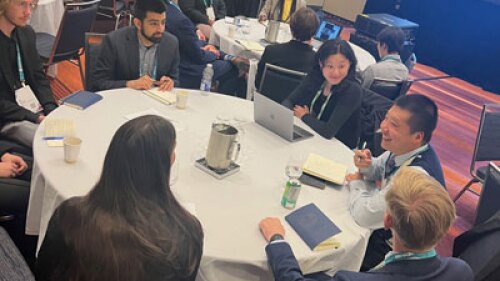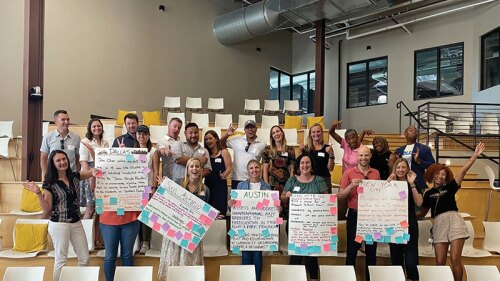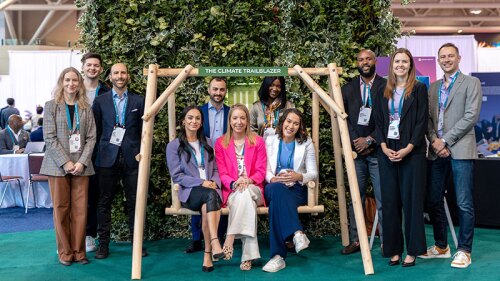ULI’s Spring Meeting in Seattle was one of the best Spring Meetings I have attended, with a record-breaking turnout (4,000-plus members and guests) and far-better-than-expected registration and sponsorship revenues. In addition to the meeting’s outstanding financial outcome, the speaker lineup was extraordinary, including former Vice President Joe Biden, Alaska Airlines chief executive officer Bradley Tilden, and The Boys in the Boat author Daniel James Brown, whose inspirational messages individuals and as an organization to new levels of excellence.
The meeting delivered more than a few memorable experiences, such as the Urban Development and Mixed-Use Council’s private sit-down with Starbucks executive chairman Howard Schultz at the company’s flagship store; the Public Development and Infrastructure Council’s journey 50 feet (15 m) underground to see Bertha, the tunnel-boring machine that is digging a new transportation route to make Seattle’s waterfront more accessible; concurrent real estate sessions held off site to allow attendees more opportunities to experience the city; a demonstration by meeting sponsor Microsoft of its HoloLens, a “mixed reality” headset that allows wearers to experience different configurations for spaces; and a mobile tour of Seattle’s waterfront developments conducted entirely by kayak.
The ongoing effort by ULI leadership to strengthen member engagement and impact was highlighted at the Spring Meeting, particularly through the introduction of new member-facing technology. We launched the Navigator—available at navigator.uli.org—which is a user-friendly tool to help members discover the many ways to get involved with ULI. I encourage you to try out the Navigator; career, your location, and other factors. After you have made a selection, ULI staff will contact you to discuss the opportunity. Two hundred opportunities are currently available in the Navigator, and we will keep adding to the list.
We also introduced a new ULI website featuring a global home page that leads to separate pages for each of the three regions—the Americas, Europe, and Asia Pacific. Over the next year, we plan to add a members-only online community that will allow you to connect with peers, form shared-interest groups, and get or give advice. We also are going to revamp the content and make the entire website more intuitive and easily searchable. Ultimately, it will be customized to reflect your unique interests so that what you care about shows up first. Check out the new look at uli.org—you will be pleasantly surprised.
Another offering announced at the meeting is our Key Leaders program, a new initiative for ULI’s most senior leaders. Through this program, we will be seeking out and offering leadership, mentoring, and other volunteer opportunities to ULI Foundation governors and trustees—the latter term meaning everyone who has ever served as a trustee. We have eliminated the word “former” as a description for trustees whose terms have ended. Trustees will serve on a permanent basis, initially serving an executive term as “governing trustees” before continuing to provide their expertise as part of a wider pool. The Key Leaders program will align the passion, interests, and expertise of these highly committed members with volunteer opportunities that will make the greatest impact.
What we debuted at the Spring Meeting—new ways to experience the meeting and new member-engagement opportunities— are part of our overall effort to make ULI more transparent and encourage greater involvement by members at all stages of their ULI journey. In the months ahead, you will be hearing more about efforts to open up and improve connections among all the member networks, including the product councils and district councils, as well as a plan to broaden the Advisory Services program to offer more panelist opportunities to more members and to serve more markets.
All of this is raising the bar for ULI. I believe ULI is as strong and relevant and has as much impact as ever, but I am equally certain that we can do more. Our goal is to raise our sights to a more distant horizon and to clarify a five-year vision for the Institute that includes performance metrics and continuous measurement of our impact. But to get where we need to go, we need your help. ULI’s best ideas have always come from you. This is your Institute, and we will be relying on your guidance to turn the ULI vision into reality.



